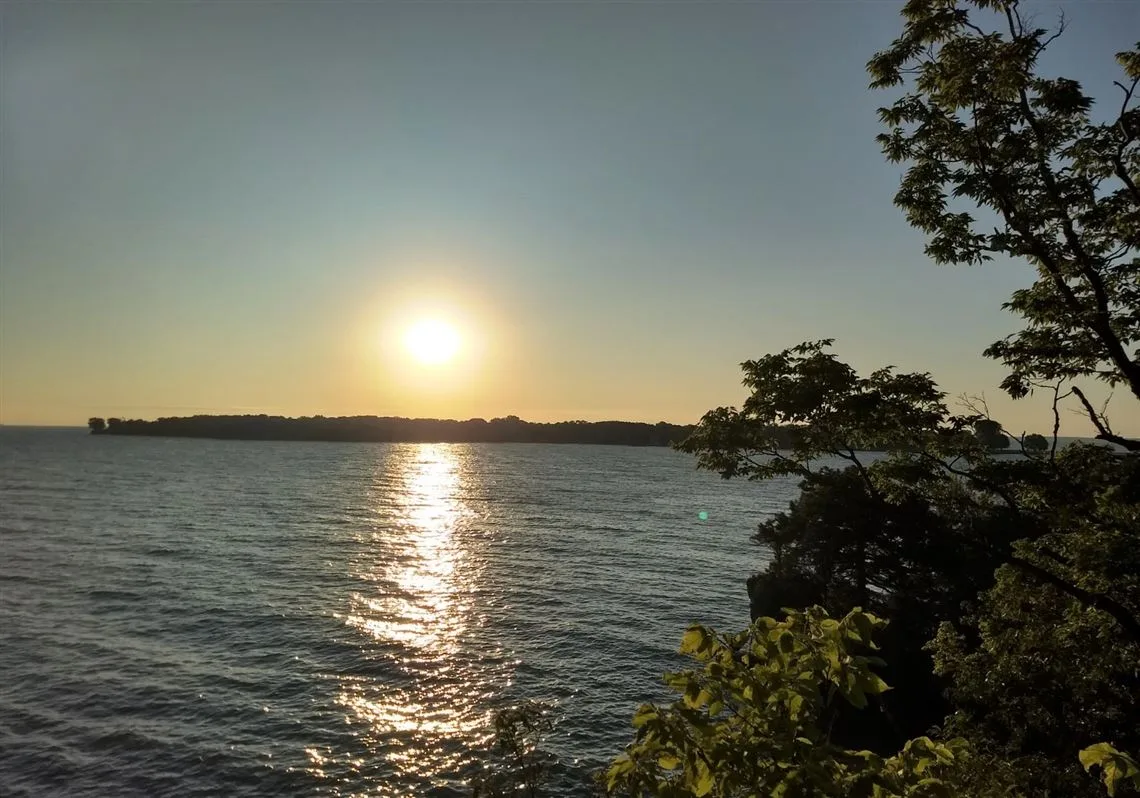By Tony Del Plato Oct 25, 2025
• How long can you go without breathing? Three minutes.
• How long can you go without water? Three days.
• How long can you go without food? Three weeks.
These existential points vary, but they make clear our connection to and reliance on the natural world including all the people we interact with on a daily basis and the non-human world that provides for us all.
Shouldn’t we do everything in our power to protect the air, water and the land that give everything we need to live? We start with how we, as individuals and families, live our daily lives. What we do each day has an impact upon our environment.
The greater impacts upon the land, air and water of communities and nations need systemic attention. Our lives and well being depend upon whether industries are good neighbors or not. Unfortunately, history has shown us that most industrial enterprises will ignore natural as well as human-made laws for profit.
This is a national and global problem. Focusing on New York State we have a long history of betrayals by corporate polluters. The contamination of Onondaga Lake began in 1881 by a long list of companies that ended with a settlement and partial cleanup by Honeywell. Native lands have been prime dumping grounds for toxic and nuclear waste throughout the U.S.
The Love Canal slow onset disaster began in 1942 when Hooker Chemical dumped 21,000 tons of toxic chemicals into the canal, near Niagara Falls. Then Hooker donated the toxic land to the school district. That catastrophe was supposedly cleaned up by 2004.
That disaster was followed by the contaminated water supply with PFOS (perfluorooctane sulfonate) in 2014 in Hoosick Falls. Dupont, along with 3M, and Honeywell, settled July 2025.
And today, closer to home in the Finger Lakes region, we have the Seneca Meadows Landfill. It’s yet to be closed and will continue to contaminate our air, land and water for decades more.
The web of life is being weakened by how we feed ourselves and how we create energy. What we do with that energy alters our environment and is the cause of atmospheric warming and massive extinction of life around the world.
Drinking water is a significant source of exposure to PFAS (polyfluoroakyl substances). Scientists are warning us that popular foods could be contaminated with PFAS, including rice, eggs, and more, all infiltrated by forever chemicals.
Recently, a peer-reviewed scientific study has confirmed that glyphosate, the primary chemical in RoundUp, the world’s most widely used pesticide, causes multiple kinds of cancer. (https://publichealth.gmu.edu/news/2025-06/international-study-reveals-glyphosate-weed-killers-cause-multiple-types-cancer)
When nature isn’t healthy, neither are we. For the first time in history, humanity has the power to destroy the natural world, poisoning the air, land, and water. Our technologies can undermine the foundations of life on Earth. The genome; seeds; entire species are all threatened.
What if bodies of water were guaranteed the kinds of legal rights that would criminalize actions that make our water and resources toxic? What if communities had the authority to enact laws that prevented pollution, extraction, and waste-dumping and protected the rights of the community, including their local ecosystem?
A bill was introduced on March 19, 2025, into the New York State Assembly by Patrick Burke. If it becomes law, the Great Lakes and State Waters Bill of Rights, would recognize the “unalienable and fundamental rights to exist, persist, flourish, naturally evolve, regenerate and be restored” for the Great Lakes and other watersheds and ecosystems throughout state.
Assemblyman Burke said: “Protecting one watershed or regulating toxins one at a time isn’t enough. All New Yorkers are connected through our water, and so this bill protects us all.”
Governing is about creating guideposts or laws that limit human enterprises. It means putting the rights of ecosystems at the center but ultimately connected to all the related natural communities including humans.
Unfortunately, government and the law today have been corrupted by power and profit. Governments and industries are openly violating human and natural law with impunity.
Can You Handle the Truth? is a diverse collection of published articles and blogs about people and nature written by Community Environment Legal Defense Fund staff through a lens of truth-telling. Sometimes, the truth can be hard to face. But in order to reckon with the systemic and cultural challenges and changes we will need to make for a future grounded in right relationship to the land we live upon, truth is the first step.”
Facts matter.
We need to build sustainable communities to assert their right to local-self government and the rights of nature.
Consider the rule of three at the top of this essay for a simple but effective way to demonstrate why we are nature and why a rights of nature legal framework is necessary.
Tony Del Plato of Interlaken is a frequent contributor to the Finger Lakes Times opinion pages.



